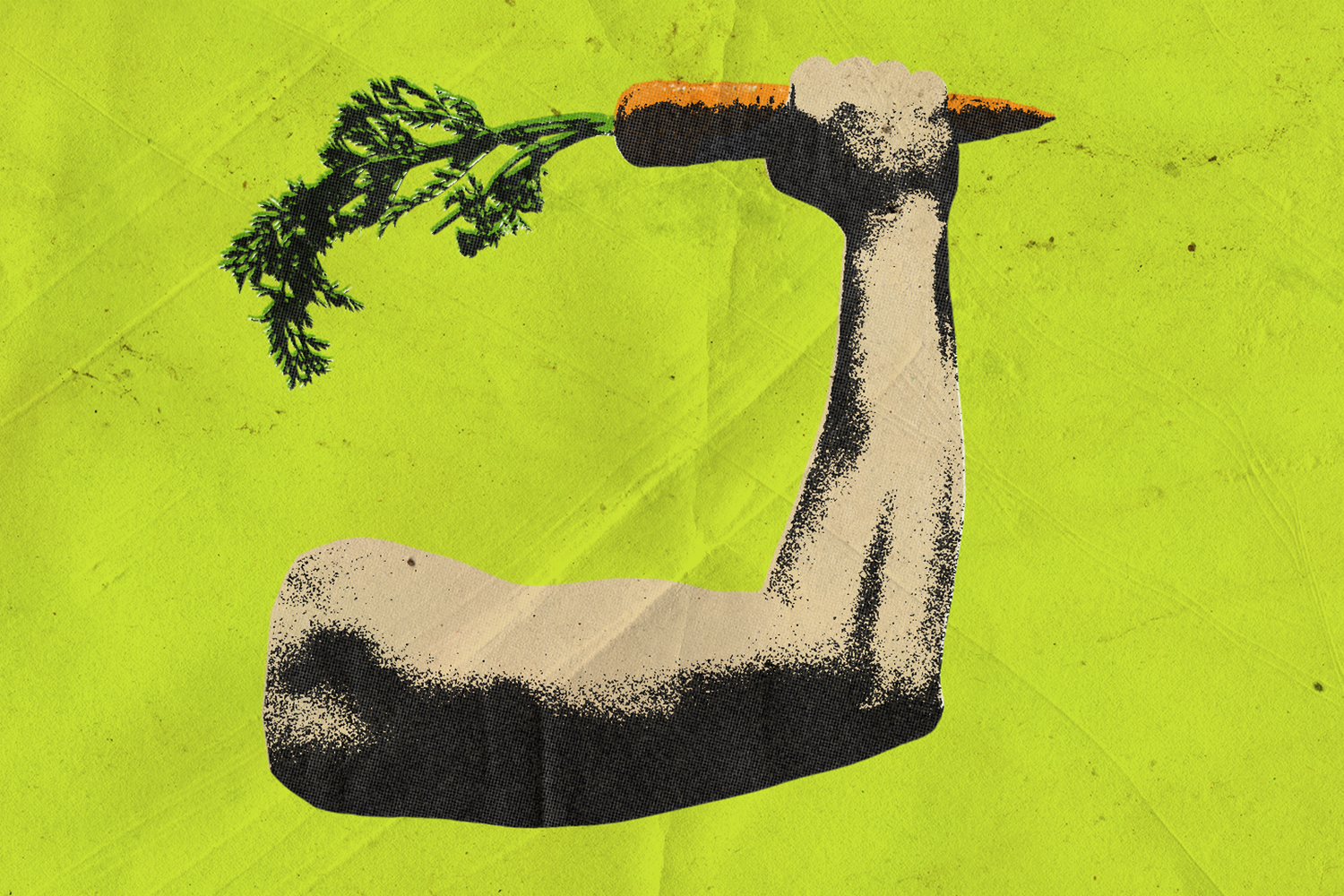Reducing your intake of animal products is one of the best ways to jump-start a climate-conscious lifestyle, but making the change can raise eyebrows. Folks who avoid animal products are somewhat used to the insinuation that they’re weak and perhaps even unhealthy.
But in reality, a plant-based diet isn’t a one-way ticket to poor or even middling health. The most recent evidence? New Jersey Sen. Cory Booker, a well-known vegan, gave a 25-hour, record-breaking speech, displaying physical endurance and strength that both go against the prevailing cultural narrative. But where does the idea come from that slimming down on animal products leads to a less healthy lifestyle—and does it hold any weight? Here’s what the experts have to say.
The roots of the weakness myth
Wariness about veganism and physical well-being are not unusual within meat-forward cultures, says Emily Belarmino, an assistant professor of nutrition at the University of Vermont. “There’s a very long history and a strong [academic] literature around the links between traditional views of masculinity and meat eating,” she says, noting that the way we talk about hunter-gatherer societies emphasizes manly figures procuring meat. That in turn stirs up feelings or fears about vulnerability and weakness if a person eats a diet lacking in meat, she adds.
Nick Cutsumpas, a former college basketball player and current plant-based eating coach, is one of many social-media creators who get hit with this narrative every day. Despite being active in the gym and spending his rest days in the garden, Cutsumpas told one5c he frequently receives messages calling him a “soy boy” and other derogatory terms to imply his veganism makes him weak or unmasculine.
While there is some risk in switching to plant-based without a plan, it’s typically healthier overall than going all-in on meat, says Teresa Fung, a nutrition professor at both Simmons University and the Harvard T.H. Chan School of Public Health. Some research has shown that cutting out animal products may up the chance of breaking bones, and vegans have a higher likelihood of developing a vitamin B12 deficiency. But on the flip side, Fung points out that “diets heavy [in] healthy plant foods have shown to reduce the risk of diabetes, cardiovascular disease, and some cancers,” as well as hemorrhagic strokes.
The protein question
“The first thing most people ask when you say you’re vegan or vegetarian is where you get your protein,” ultramarathoner Michael Wardian tells one5c. He’s been fully vegan since 2022, broken world records and participated in hundreds of marathons, despite some coaches assuming he would perform poorly if he didn’t eat meat.
When it comes to protein, most Americans don’t need to worry about it, says Fung. The American diet, even a plant-based one, has “so much protein in it that even when you are an avid athlete, that is enough,” she says. People who eat plant-based foods can generally fill the recommended daily minimum (about 0.36 grams per pound of body weight), but people doing intense training need to up that to between 0.54 and 0.77 grams per pound. Fung says a diet with a rich and varied mix of protein-dense plant foods—like beans, tofu, and tempeh—can get to those levels with careful meal planning.
If you plan on nixing meat and dairy, or even lowering your intake significantly, the change “does require a higher degree of planning and intentionality around your nutrients,” echoes Belarmino. Apps like MyFitnessPal can help track nutrients so you can mind your macros, while still keeping the planet at the top of your mind. It also doesn’t hurt to talk to your doctor before diving in, and to take any major eating shift at a pace that works for you.

